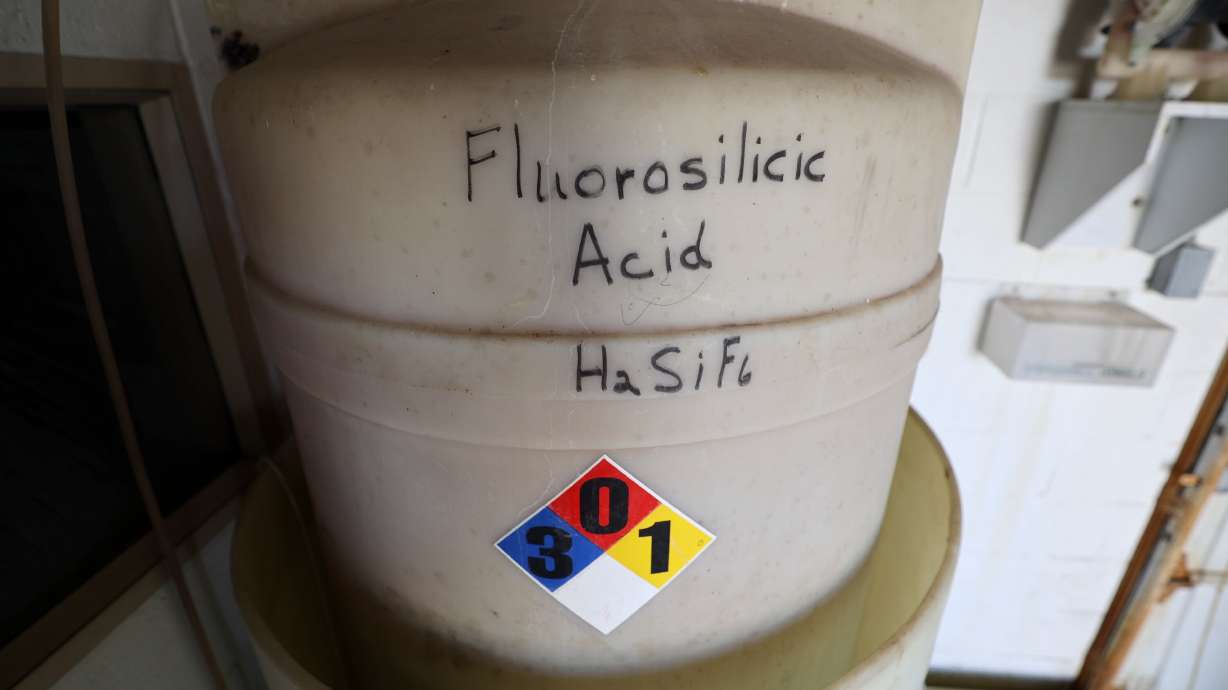Estimated read time: 5-6 minutes
- Utah becomes the first state to ban fluoride in public drinking water.
- Gov. Spencer Cox signed HB81 despite opposition from major health organizations.
- The decision follows safety concerns and past overfeed incidents in Sandy.
SALT LAKE CITY — With a late night announcement of his signature of HB81, Utah Gov. Spencer Cox secured Utah's position as the first state in the nation to ban the addition of fluoride into public drinking water systems.
The governor's signature comes despite thousands of emails from groups like the American Dental Association and the American Medical Association urging a veto of the measure by Rep. Stephanie Gricius, R-Eagle Mountain.
Fluoride, while a naturally occurring element, is derived in this case from hydrofluorosilicic acid, a waste product from phosphate mining operations that is a hazardous, poisonous material containing lead and arsenic. It has to go through a rigorous dilution process.
The pressure to ban the substance comes from a variety of factors, including a district judge's ruling in California that said the levels at which it was being introduced into water were unsafe.
Several people affected by the disastrous fluoride overfeed in 2019 in Sandy testified in committee hearings during this past session, detailing the harmful health effects they continue to suffer.
The release happened as a result of a power surge during a snowstorm. In that incident, the well's pump was operational, and when an alarm went off and was cleared, the fluoride pump began to work, discharging the fluoride. Because it is 20% denser than water, it displaced the water and was fed by gravity into a portion of the drinking water system, sickening hundreds of people.
How much is too much?
In Sandy, fluoride was detected at 40 times the federal limit after the release, and two weeks of free blood testing for lead showed one person with elevated levels, according to Salt Lake County health officials.
An independent investigation by an engineering firm probing the overfeed concluded there was government failure at all levels, starting with Sandy, moving up to Salt Lake County and its health department, as well as the Utah Department of Environmental Quality.
At the outset, there was no clarity as to what happened or what the risks were. It took Sandy more than a week to warn residents to take precautions.
In the California ruling, Judge Edward Chen said: "The 'optimal' water fluoridation level in the United States of 0.7 milligrams per liter is nearly double that safe level of 0.4 milligrams per liter for pregnant women and their offspring. In all, there is substantial and scientifically credible evidence establishing that fluoride poses a risk to human health."
That decision sent the U.S. Environmental Protection Agency back to the drawing table to issue new guidance on what constitutes a safe level of the chemical in drinking water.
The American Dental Association countered that it was safe and represented one of the most significant milestones achieved in the protection of public health by preventing tooth decay.
"Based on the ruling, the EPA is required to take a regulatory action, but the ruling did not ban or in any way limit the addition of fluoride to public drinking water supplies," it said.
But Chen's ruling cited a review by the National Institutes of Health's toxicology program finalized last year, which concluded that "higher levels" of fluoride are now linked to lowered IQ in children.
Both Salt Lake and Davis counties voted by citizen initiative to introduce the substance into drinking water systems about two decades ago. Brigham City and Helper also add fluoride to their water.
While some people urged lawmakers not to overturn the "will" of the people, other residents said they were outvoted on an issue that took making their own choices about health care out of their hands.
Water districts, too, complained about the cost and the complicated nature of introducing the substance to drinking water. In the case of Davis County, Weber Basin Water Conservancy District had to invest millions to set up a system to ensure the fluoride only went to the Davis County residents they serve and not other residents like those who live in Weber County who did not have a citizen initiative.
Several states are looking to follow Utah's lead in this arena. In Florida, that state's surgeon general urged communities late last year to stop introducing fluoride to drinking water.
According to Health News Florida, a study co-authored by a University of Florida researcher is the first of its kind in the U.S. to examine how prenatal fluoride exposure might impact child neurobehavior, according to assistant professor of epidemiology Ashley Malin. The study's findings are consistent with those from similar studies based in Canada and Mexico.
"We found that higher exposure to fluoride during pregnancy was associated with more neurobehavioral problems in the children by age 3," Malin said.
Nebraska is moving to do away with a mandate that requires fluoridated water in communities, and while a measure with similar prohibitions died in committee in Arkansas, the bill's sponsor said the issue will be taken up again.
While fluoridated water has been contentious for some time in Utah, the issue is gaining steam via the newly-appointed secretary for health and human services, Robert F. Kennedy Jr., after he called it an industrial waste product.
Many toothpaste brands already contain fluoride, and under Utah's law, people can still get fluoride from their local pharmacist without a prescription.









